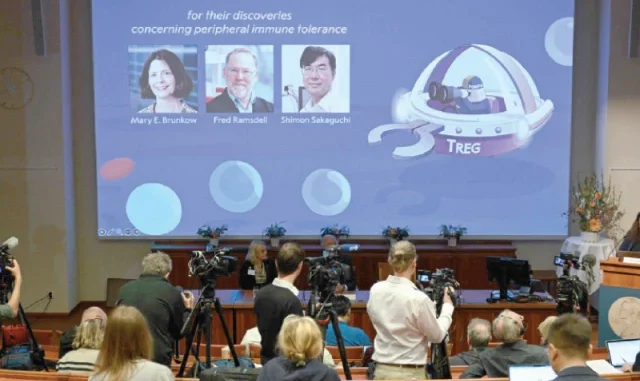
US and Japanese Scientists Win Nobel Prize in Medicine for Immune System Discovery
STOCKHOLM:
Three scientists from the United States and Japan won the 2025 Nobel Prize in Medicine. They were recognized for discovering how the immune system is controlled by special “security guard” cells, the Nobel jury announced Monday.
The Laureates
The winners are Mary Brunkow and Fred Ramsdell from the United States, and Shimon Sakaguchi from Japan. Their research has helped explain how the immune system works and why most people do not develop serious autoimmune diseases.
Reaction to the Award
The Nobel committee initially struggled to reach Brunkow and Ramsdell in person. Thomas Perlmann, secretary general of the Nobel committee, joked:
“If you hear this, call me.”
Brunkow said she was asleep when she got the call and described the award as an honor. Ramsdell had not been contacted six hours later, as he was reportedly backpacking in Idaho.
Breakthrough Research
The team discovered regulatory T-cells. These cells prevent the immune system from attacking the body, a process called peripheral immune tolerance. Their work has opened a new field of research. It also supports treatments now in clinical trials for autoimmune diseases, cancer, and stem cell transplant complications.
Sakaguchi made the first discovery in 1995 by identifying immune cells that protect against autoimmune disease. Brunkow and Ramsdell expanded the research in 2001. They explained why some mice are more prone to autoimmune disorders. They also identified the Foxp3 gene, linking it to human disease, including IPEX, a severe autoimmune condition.
Jonathan Fisher, an immunologist at University College London, said the field has advanced rapidly. However, the discoveries have not yet led to widely used drugs.
NEWS DESK
PRESS UPDATE
